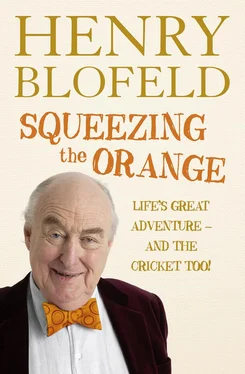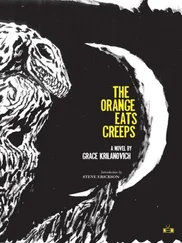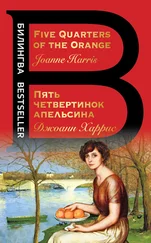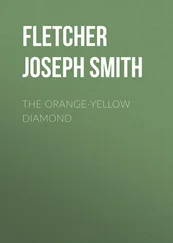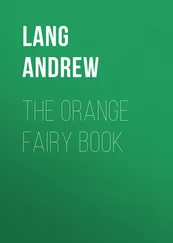1 ...8 9 10 12 13 14 ...22 I was given my first-eleven colours for cricket when the team photograph was about to be taken at the end of the 1950 summer term, my second year in the side. Later that afternoon I was ferried off by Mrs Fox to St George’s hospital in Windsor to have my tonsils removed. I remember Matron packing my new dark-blue cap, and when Mrs Fox unpacked my case at the hospital she thrust this cap under my pillow. When you got your colours this was the accepted modus operandi. The nursing sister was more than mildly surprised, but Mrs Fox pretty well told her to mind her own business. I never felt closer to her than I did at that moment, and I was able, with considerable pleasure, to try on the cap during the night. I had to wait until the chap with whom I shared a room, who probably wouldn’t have understood, was asleep.
What an adventure Sunningdale was and a splendid way to start learning about the highs and lows of life. In the schoolroom I was never remotely a candidate for a scholarship to anywhere except Borstal, but I suppose I did just about enough work to get by, and when I came to take Common Entrance to Eton, I achieved a humble middle fourth, which was lower than was hoped, but probably higher than was feared. I was never any good at exams. That rather apprehensive five-hour journey in my father’s old green Armstrong Siddeley at the start of May five years before had been well worth it. In the end Grizel had got it right, as she usually did.
THREE
The French Women’s Institute
Cricket had me in its grip before I had been at Sunningdale for a year. The following June, in 1948, I found myself at Lord’s with Tom and Grizel sitting on the grass in front of Q Stand eating strawberries they had brought up from Hoveton and watching the third day of the second Test against Australia. I became one of what is now a sadly diminishing band of people to have seen the great Don Bradman bat. He made 89 in Australia’s second innings before being caught at shoulder-height by Bill Edrich at first slip off Alec Bedser. I can still see the catch in my mind’s eye. As he departed, dwarfed by that wonderful and irresistible baggy green Australian cap, I was sad that he hadn’t got a hundred, but everyone else seemed rather pleased. I distinctly remember him facing Yorkshire’s Alec Coxon, a fast bowler playing in his only Test match. A number of times Coxon pitched the ball a little short, and Bradman would swivel and pull him to the straightish midwicket boundary, where we were sitting on the grass. Once I was able to touch the ball – what a moment that was.
It was not only at school that I revelled in cricket. In the Easter holidays I went to indoor coaching classes in Norwich taken by the two professionals who played for Norfolk : C.S.R. Boswell, a leg-spinner and late-middle-order batsman known to one and all as ‘Bozzie’, and Fred Pierpoint, a fastish bowler. Then, in the summer holidays, Grizel would heroically drive me to all parts of Norfolk, however inaccessible, for boys’ cricket matches in which I became a fierce competitor. We would set off in the morning in Grizel’s beetle Renault, with a picnic basket on the back seat. Grizel was nothing if not a determined driver. Whenever she changed gear it was as if she was teaching the gearstick a lesson, and she generally treated the car as if it was a recalcitrant schoolboy. Some of the lay-bys in which we stopped for lunch became familiar haunts over the years. A hard-boiled egg, ham sandwiches and an apple were the usual menu, and it never helped things along if I dropped small bits of eggshell on the floor.
The cricket usually began at about two o’clock, and I remember many of the mums being, if anything, rather more competitive than the players. There were certain key players in the teams I played for: Jeremy Greenwood bowled very fast, Michael Broke’s off-breaks took a long time to reach the batsman, Jeremy Thompson – whose father Wilfred had bowled terrifyingly fast for Norfolk and had captained the county – was another star, while Timmy Denny did his best. Henry and Dominic Harrod, sons of the famous economist Roy Harrod, had their moments, and the many Scotts all played their part, especially Edward, who bowled fast – we later played cricket together at Eton. He was a cousin of the Norfolk Scotts, although he lived in Gloucestershire, and was to become one of my greatest friends. The two Clifton Browns also contributed, and their mother scored like a demon in a felt hat.
The Norfolk Scotts lived at North Runcton, near King’s Lynn. Father Archie, as tall and thin as a lamp post, was the first Old Etonian bookmaker, and his delightful and cuddly wife Ruth was a huge favourite with all of us, forever laughing and always a fount of fun. She was also great friends with the Australian cricketers of Don Bradman’s generation and before. A particular ally was the famous leg-spinner Arthur Mailey, a great character and the most delightful of men. He had been a wonderful bowler, as well as being a brilliant cartoonist. For some reason he took a great interest in my future as a cricketer, and one of my proudest possessions is a booklet he wrote in 1956 called Cricket Humour , with some amusing stories illustrated with his own drawings. The front cover is a lovely cartoon of Mailey himself trying to bribe the umpire with a fiver. On the first page he wrote: ‘My best wishes for a successful cricket life. Saw you play at Runcton about 3 years ago and am very pleased about your progress. Arthur Mailey ’56.’ Later in life I put together a small collection of his original cartoons, and they are a great joy.
In between those holiday matches I would go to Lakenham cricket ground, with its handsome thatched pavilion, where Norfolk played their home games. Now I would be ticked off for spilling my picnic eggshells on the grass in one of the little wigwam-like tents which lined one side of the ground. One of them had a sign hanging on the outside which proclaimed that it belonged to T.R.C. Blofeld. Inside was a small table and some rickety deckchairs. Those days at Lakenham gave me an early glimpse of what I think I supposed heaven was all about. Norfolk never won very much, but my goodness me, it was exciting.
I always brought along my own puny bat and a ball, and sometimes I was able to persuade someone to bowl at me on the grass behind the parked cars at the back of the tents. Among them was the vermillion-faced Mr Tarr, who was the Governor of Norwich Prison and, I hope, a better governor than he was a bowler. Every so often, as I was sitting in a deckchair watching the cricket, a four would be hit in my direction and I would stop it and throw it back to the fielder. Not quite the same as fielding to Bradman, I know, but you took what came. Just occasionally there was the thrill of a six being hit towards our tent, forcing everyone to take cover in a mildly cowardly panic. My early heroes from these occasions were an eclectic bunch, including the afore-mentioned Wilfred Thompson; David Carter, military-medium; and Cedric Thistleton-Smith, who was always out unluckily – all three of whom came from west Norfolk and were thriving farmers. Lawrie Barrett, short and dark-haired, a tiger in the covers, thrilled us all a couple of times a year as a middle-order batsman and succeeded Thompson as captain. H.E. Theobald was a large man who, like his Christian name (it turned out to be Harold), remained a bit of a mystery. He was not in the first flush of youth, and nor was his batting. Then there was good old, eternally cheerful, round-faced Bozzie; we loved his spritely cunning with the ball and his enthusiastic twirl of the bat when his turn came late in the innings. He had a kind word and a smile for everyone.
Village cricket also played a big part in my life. The heroes for Hoveton and Wroxham did battle on the ground set up by those German prisoners-of-war. I had some fierce battles with Nanny, who refused to let me go and watch them when they were at work. I was determined to wear the German policeman’s helmet I had been given by some returning warrior. She felt it would not have created the right impression, and unusually for her, had a word about it with Grizel – who of course agreed wholeheartedly. So my one intended thrust for the Allies was nipped in the bud.
Читать дальше
